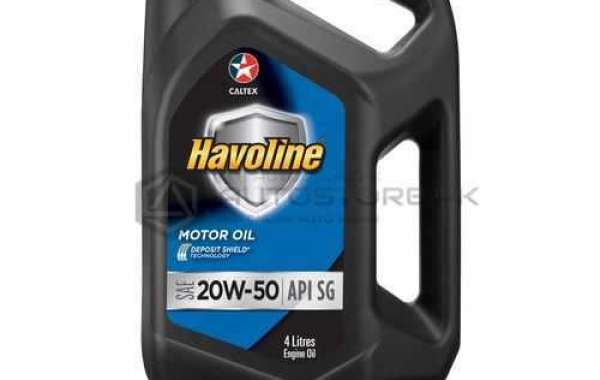Havoline 20W-50 is a type of motor oil that is primarily used in internal combustion engines, such as those found in automobiles, trucks, and other vehicles.
The "20W-50" designation refers to its viscosity or thickness under different temperature conditions.
- The "20W" part means that the oil has a lower viscosity when cold, making it suitable for starting and operating in colder temperatures. The "W" stands for "winter," indicating its performance in cold conditions.
- The "50" part means that the oil has a higher viscosity when hot, which can provide better protection for the engine when it's running at higher temperatures.
Havoline 20W-50 motor oil is often used in older vehicles and in certain high-temperature or heavy-duty applications where a thicker oil is required for engine protection. It is important to check your vehicle's owner's manual or consult with a mechanic to determine whether Havoline 20W-50 is suitable for your specific engine, as the recommended oil viscosity can vary from one vehicle to another.
Certainly, here's some more information about Havoline 20W-50 motor oil:
- Viscosity and Temperature Range:
Havoline 20W-50 has a relatively high viscosity, which means it is thicker than oils with lower viscosity ratings. This oil is suitable for use in areas with hot weather or in older engines that may benefit from a slightly thicker oil to maintain proper lubrication and reduce wear.
- Engine Compatibility:
Havoline 20W-50 is often used in older vehicles, particularly classic cars and certain high-performance or high-displacement engines. It's not typically recommended for modern engines that specify thinner oils, such as 5W-30 or 10W-30.
- Benefits:
- Enhanced protection in high-temperature conditions: The higher viscosity at operating temperatures helps maintain a protective oil film on engine components, which is important in hot climates or during heavy use.
- Reduced oil consumption: Thicker oils like 20W-50 may help reduce oil consumption in older engines with worn seals or higher clearances between moving parts.
- Potential Drawbacks:
- Reduced fuel efficiency: Thicker oils can create more internal friction within the engine, potentially leading to a decrease in fuel efficiency.
- Slower engine warm-up: The higher "W" viscosity rating means that the oil can be less flowable in cold weather, which may result in slower engine warm-up times.
- Recommendation:
Always refer to your vehicle's owner's manual or consult with a qualified mechanic to determine the appropriate motor oil viscosity for your specific engine. Using the wrong oil viscosity can affect engine performance and longevity.
It's important to note that there are various formulations and brands of 20W-50 motor oil, including Havoline, so you should also consider factors like the specific additives, certifications (such as API certifications), and manufacturer recommendations when choosing the right oil for your vehicle.










